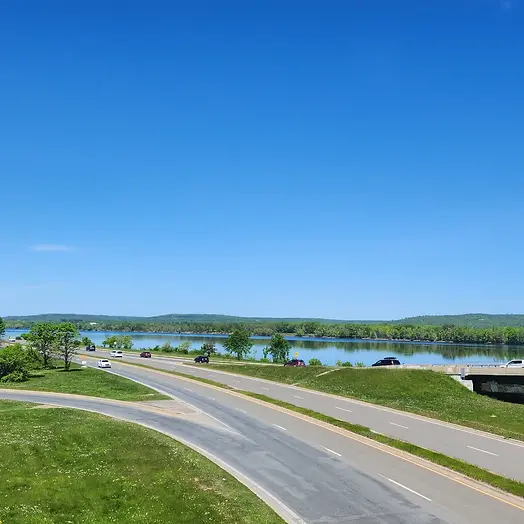“Migration is one of the most vital survival strategies”: that is how Sir David Attenborough opened the second season of the Netflix documentary “Our Planet”. Although his introduction was meant to set the stage for a breath-taking and picturesque portrayal of the mass migration of animals in the wild, it inevitably leads us to consider all motile creatures as reactant to their global environmental pressures: this includes all of us, human beings.
News outlets across Canada have been raising the alarm about our most critical environmental pressures to date: the climate changing drastically, a nation-wide housing crisis, and a massive restructuring of the job market caused by the pandemic. We have seen the effects of climate change in the burning of our forests at 13 times the rate of our 10-year average. Not only have people been displaced, but communities that are hundreds to thousands of miles away have been impacted by the thick smoke that engulfed many cities. To add to these environmental problems, there are other issues such as the housing market becoing unattainable for most, with property values and mortgage rates skyrocketing seemingly out of control. The job market too, has seen a massive restructuring post-Covid, with roughly 20% of the Canadian workforce now working from home, and the phenomenon now known as “The Big Resignation” leading to the workforce playing an erratic game of “professional musical-chairs”. There has also been an alarming labor-shortage in essential population-supporting industries such as healthcare, hospitality, and education.
All of these outside forces have compelled many people to reconsider how they should live their day-to-day lives: there is no denying that every aspect of our personal and professional lives is bound to the environment that surrounds it, be it ecologically or economically. Our livelihood and survival depend on our climate, shelter, and work, but the unfortunate chain of events have forced individuals around the globe to migrate to places where survival requires less strain and stress. In Canada particularly, there has been an upward trend in interprovincial migration; it is not a new one, but if we pay closer attention, there is a fact that becomes obvious: Canadians are moving to New Brunswick in hordes. The stats are now in, and it is clear that the previously labelled “drive-through province” is currently seeing one of the biggest migration of Canadians from other provinces in 40 years.
During the 2022 New Brunswick State of the Province address, Premier Blaine Higgs celebrated this immense growth. He discussed how the province is seeing the highest population gains from interprovincial migration in the last 40 years (the 4th highest in all of Canada). It is no surprise that the population of New Brunswick has now surpassed 800 000. Every aspect of industry is here to tell a part of the story: provincial exports are now the second-fastest growing in the nation, manufacturing sales are up double-digits, real estate is seeing record-breaking sales, there has been about $2 billion in private investments, seafood exports have reached an all time high of 2.2 billion, and the province is now seeing the second largest growth in exports in the country (after Alberta). This immense growth in the economy means there are now plenty of opportunities for everyone, and opportunities are what out-of-province Canadians are looking for moving into New Brunswick.
Jason Cooper and Sara Halton are two young professionals in their late 30’s, and they moved from Kitchener, Ontario, to Oromocto, New Brunswick with their 5 kids in July of 2022. Their main motivation, like many interprovincial migrants, was housing. “We looked everywhere in Ontario and started rationalizing,” said Jason. With the price of houses in Ontario now being downright unaffordable, Alberta seemed like the next good candidate, “but we didn’t want to be so far away from family”. Jason always worked from home as a Security Researcher for McAfee, so the question of employment was not so much of an issue, but rather a question of longevity: he wondered how long the remote work opportunity was going to last. “Waterloo became a huge tech center, but when Google closed its doors there, I knew that sector was dying in the region”. It turns out that New Brunswick is now a global leader in national cybersecurity, with both IBM and Siemens choosing the province to open new facilities, so that became “a no-brainer” for him. For Sarah who is a RN, moving still required looking for new employment, however she reasoned “I knew it wouldn’t be a problem because of the crisis that Covid highlighted, I knew it wouldn’t be so hard”. Sarah did in fact quickly find work as a nurse at Oromocto Public Hospital, but had to sacrifice her schedule by working night shifts: “It kinda sucks,” she admitted, “but it was never a make-or-break kind of situation”.
Moving to another province with a different culture and way of life inevitably means sacrificing the many conveniences bigger cities have to offer, like the plethora of job opportunities and access to innumerable goods and services, but for Margo Riel-Landry and Glen Menard who moved from Les Coteaux, Quebec, to Bass River, New Brunswick in July 2021, there was nothing to sacrifice. Their decision to move to the province was prompted by a combination of things. “We wanted a place on the water, Margo wanted a country home, and we thought of British Columbia, but I found that was too far away from the kids, I wanted to live somewhere they could drive to”. Margo and Glen are both in their 50s, and while now Margo is mostly busy with the homestead, Glen works from home for Manulife, so the transition was easier.
When asked about their expectations and how they have panned out, they said that their experience so far has exceeded expectations: “We expected tranquility, no hussle-and-bussle”, Glen said. Margo excitedly added “The general store in town is like in the olden days, and I love their slogan ‘If we don’t have it, you don’t need it!’”. Margo expounded on how community-minded everyone is, and how easy it is to really get to know people on a personal level. “When people ask you how you are, they’re genuine. I’m completely overwhelmed and in love with this place”. The Menard-Riel family is a big family with 5 kids, and I couldn’t help but wonder how difficult it was for them to leave them behind, but Margo explained “I love my kids so much, I never spend enough time with them, so I’ve gone through moments where I miss them a lot. I’ve been sad and depressed but now I’m doing much better. When you live close to family and they come and go, you take those moments for granted. Now when they come here, there are no distractions, the quality is much better than quantity”.
Sarah Woods, a 24-year old RN who now works with Sara Dalton at Oromocto Public Hospital, was born and raised in Chatham, Ontario. She moved to Thunder Bay for university, where she met her now-fiancé in school. They both felt they couldn’t live there, considering it too unsafe “It’s the murder-capital of Canada!”, she deplored. In 2021, they decided to finish their degrees and move to Charlottetown, PEI. They were eager for a change, and were hoping to make it their forever home, but after a year of living there, Sara explained “we faced some challenges; namely the isolating factor of the island (having to pay to leave), heavy traffic, a housing crisis which led to high house prices and low renting opportunities. We did, however, like the east coast feel and the fact my sister was in Charlottetown”. Having tracked the state of housing across Canada, they suddenly decided to turn to New Brunswick, an option they had never considered before: “we wanted to be close to one of the major hubs; Fredericton, Moncton, or Saint John, […] we looked around and liked the thought of Oromocto. It was 15 minutes from Fredericton, close to Costco and other amenities, but its own town with a grocery store, pharmacy, and everything. We moved to the rural area of Oromocto in the community of Burton (10 minutes away from Oromocto). We love it!”.
In terms of job opportunities, Sarah, like Sara Halton, had no concerns, and her fiancé had a permanent work-from-home job as a Software Developer. What they expected? “An improved quality of life. We both value a slower pace with a more relaxed feel. We expected clean and safe areas with lots of hiking opportunity and a 'rural' feel. I grew up in a farming community, my fiancé grew up in a small, isolated town in Northern Ontario. Although we loved the rugged beauty of Thunder Bay, it just wasn't safe with the addiction crisis. We were looking for something similar, just safer and still affordable. NB was a perfect opportunity”. Sara expressed her difficulty with leaving their friends and family behind, noting “It's difficult, but I haven't lived with my family in a long time […] but now that they are getting older, reaching their mid 60s, I do worry a bit more about their health and being so far away. When they visit, they love it here. I might be able to recruit them to move here. I will say that I don't think I would consider having kids unless I had family nearby. I think it would be too difficult. As for friends, I do miss them; and it was the hardest part of leaving. I have made friends here though, and I do not regret this change”.
Evidently, the pandemic and the ensuing state of affairs caused a lot of people to re-consider how they live their lives. In 2020, many were all suddenly forced to stop and slow down, offering a moment to pause and offer perspective. There are a number of scientific publications delving into the effects the pandemic has had on our psychology. One recent study published in 2022 in the National Library of Medicine by David L. Dawson and Nima Golijani-Moghaddam uncovered the coping mechanisms of individuals in the UK post-covid. Dawson and Golijani-Moghaddam identified psychological processes that helped to protect well-being and psychological health during the pandemic, an important one being psychological flexibility, which is “the ability to recognize and adapt to situation demands in pursuit of personally meaningful longer-term outcomes”.
Perhaps what we have considered the worst challenge has made us more adaptable to change. The challenge ahead resides in how ready the New Brunswick government is ready to deal with the new reality. Based on the most recent State of the Province address by Premier Blaine Higgs, and the State of the City address of Fredericton Mayor Kate Rogers, it seems like it is motivated and aligned with all the potential hurdles ahead, and seem to be working diligently at crafting a plan that benefits all New Brunswickers, natives and newcomers alike. The next decade will be telling, and all 8,566 newcomers that have landed here in the last 5 years are anxiously waiting to see what the next 5 years will hold.
The Stats are in: New Brunswick No Longer the “Drive Through Province”



.png)
This statistic shows the net number of interprovincial migrants in New Brunswick from 2000 to 2022. From July 1, 2021 to June 30, 2022, 10,612 more people came to New Brunswick from other provinces or territories than left New Brunswick.